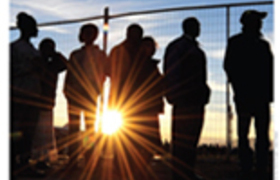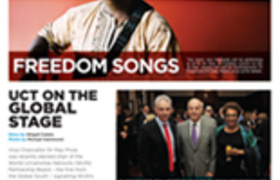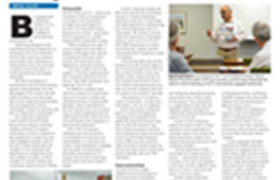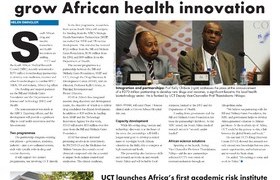Out in Africa
17 June 2014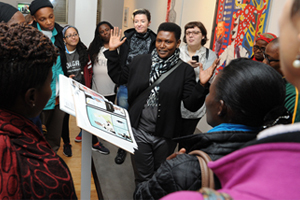
A pan-African problem that embarrasses us all is how Vice-Chancellor Dr Max Price described the upsurge of homophobic sentiment across the continent at the opening of the Queer in Africa: Confronting the crisis, symposium.
This one-day conference on June 2 saw African scholars and activists coming together to try and make sense of the "rising hatred and anti-humanist turn in the continent". It was the culmination of a series of events on the Africa month calendar that included the Critically Queer exhibition and a panel discussion titled How and what is queer about Africa, and why now?.
Price pointed out that in South Africa the rights of lesbian, gay, bisexual, transgender and intersex (LGBTI) people were protected by law, "but the attitudes, the practices and the extent to which there is hate speech and action as well as discrimination directed at such individuals continues, and in some cases, might be worse than in previous years."
Growing prejudice
He called on universities, their presidents and vice-chancellors from around the world to stand up for the rights of their LGBTI students and staff. "We need to recognise that these are our students and that these students are at risk upon their return home; and that we need to do something to protect and defend them and change the environment they live in," he urged.
The Queer in Africa events come after increasingly oppressive anti-gay laws were passed in Uganda and Nigeria earlier this year, bringing the number of African countries with anti-gay laws on their books to 38 of the 54 states.
Price shared his delight with the fact that the events leading up to the symposium were "multi-disciplinary and multi-focal, (where) art and music, poetry and discussion combined to ensure that what might come across as remote, aloof and a bit ivory-tower to activists and artists is opened up and made accessible to them."
Queer culture
Performances by poets and musicians accompanied the opening of the Critically Queer exhibition at the Centre for African Studies (CAS) Gallery at the end of May. In her keynote address there Dr Stella Nyanzi, a medical anthropologist from the Makerere Institute of Social Research at Makerere University in Uganda, explained that the crisis facing the LGBTI community in Africa is legal, political and cultural.
"In Uganda to be anti-gay, homophobic and anti-trans is to be patriotic. So, how can queer Ugandans be true to themselves when they are labelled unpatriotic? Nationalism is necessarily anti-queer in very many African locations," said Nyanzi.
Kenyan academic Dr Keguro Macharia, in his dissection of the recently published Queer African Reader, urged his audience at the panel discussion to remember that the emergence of queer studies is linked with Aids and death.
"We need to remember that 'queer' begins not as a term of celebration or inclusion, but as a term of mourning. In queer there is always a proximity to death and dying and disposability. It's a very necessary reminder that the way we use queer might have an ethical focus that's linked to disposability, and linked to the bodies and lives we throw away.
"It's worth noting that nobody talks about queer marriage, but gay marriage. The word 'queer' is an uncomfortable term. We have to be consistent, the meaning of these terms is not just a given. We have to fight for the meaning associated with these terms."
Story by Abigail Calata. Photo by Michael Hammond.
 This work is licensed under a Creative Commons Attribution-NoDerivatives 4.0 International License.
This work is licensed under a Creative Commons Attribution-NoDerivatives 4.0 International License.
Please view the republishing articles page for more information.
News
Faculty Focus - Humanities
Opinions
Photo Essay
Front page
Previous Editions
